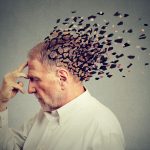What is dizziness?
Dizziness is a term that describes a range of feelings, such as feeling unsteady, woozy, weak or faint. It is something that most people may experience from time to time. It is rarely the sign of a serious problem. There are ways to relieve dizziness.
What are the symptoms of dizziness?
If you are feeling dizzy, or experiencing a ‘dizzy spell’, you will usually feel light-headed, unsteady or unbalanced and you may also feel weak. You might also feel like you’re going to faint.
What causes dizziness?
Dizziness is common in adults, but it is rarely the sign of a serious condition. Dizziness has many possible causes, including:
- problems or conditions that affects the ears such as Meniere’s disease and labyrinthitis
- problems with the eyes
- problems with the heart
- migraine
- stress or anxiety
- low blood sugar
- dehydration or heat exhaustion
- a fall in blood pressure when you stand up
- problems with the blood flow to the brain
- motion or travel sickness
- vertigo
- viruses and other illnesses
- brain and nerve-related disorders
Some medicines (check the patient information leaflet) and alcohol can also make you feel dizzy.
Causes of feeling faint
Feeling faint is common and happens when blood flow to the brain is reduced. This can be caused by a number of factors, such as:
- changes in blood pressure due to posture
- dehydration
- anaemia
- some medicines
- high levels of pain
- exposure to sights you find unpleasant, such as the sight of blood
- high levels of anxiety
- standing up for long periods of time
- coughing, sneezing or laughing
- straining on the toilet
- heat exposure
When should I see my doctor?
You should seek medical attention if you feel dizzy and also have:
- pain, pressure, heaviness or tightness in the chest, shoulders, neck, arms, jaw, or back
- nausea, cold sweat, shortness of breath
- numbness or weakness in the face, arm or leg
- trouble talking, understanding or swallowing
- vision changes in one or both eyes
- confusion or becoming unconscious
See your GP if you have an unexplained fall, or you are worried by your dizziness, or if your dizziness is sudden, severe, or prolonged or keeps happening.
How is dizziness diagnosed?
Your doctor will examine you, and ask you about your symptoms and medications. You may also need a hearing test and balance tests, blood tests and other tests to check heart and blood vessel health.
How is dizziness treated?
Dizziness often gets better without treatment. If you need treatment, it will depend on what is causing your dizziness.
Even if a cause can’t be found, there are effective ways to treat dizziness, including medications and balance exercises.
Self-care
If you are feeling dizzy or light-headed you may find the following advice helpful:
- When you feel dizzy, stop what you are doing and sit down until it passes.
- If you feel faint, try lying down flat. This will allow blood to reach your brain quickly.
- Make sure you drink enough fluid — at least 6 large cups of water every day, unless advised otherwise by your doctor.
- Rest as much as possible.
- Change positions slowly, especially when you are standing up after lying down. Try to sit for a couple of minutes before standing up.
- Avoid sudden, fast movements of the head, such as looking up or around too quickly.
- Hold onto the railing when going up and down stairs.
- Consider using a walking aid.
- Avoid driving or operating dangerous equipment or machinery while you feel dizzy as this could be dangerous to yourself and others.



